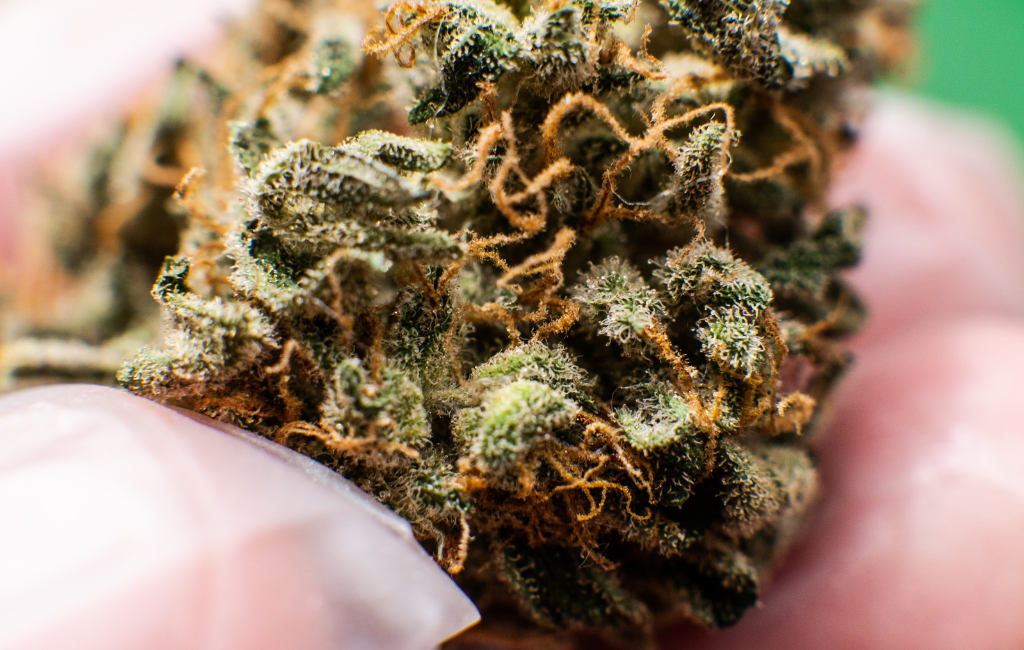
THCa Flower for Pain Relief
In recent years, the exploration of cannabis for medicinal purposes has gained significant traction. Among the various compounds found in cannabis, THCa (tetrahydrocannabinolic acid) is emerging as a promising option for pain relief. Unlike its more famous counterpart THC, THCa is non-psychoactive, making it an attractive choice for those seeking therapeutic benefits without the high.
Understanding THCa: The Basics
THCa is a cannabinoid found in raw and live cannabis plants. It is the precursor to THC, the compound responsible for the psychoactive effects of cannabis. When cannabis is heated through smoking, vaping, or cooking, THCa converts to THC. This process, known as decarboxylation, is what gives cannabis its psychoactive properties.
In its raw form, THCa does not produce a high. This characteristic makes it appealing for individuals who want to experience the medicinal benefits of cannabis without the psychoactive effects. Research suggests that THCa may have anti-inflammatory, neuroprotective, and anti-emetic properties, which could be beneficial for pain management.
THCa and Pain Relief: What the Research Says
Several studies have explored the potential of THCa in managing pain. While research is still in its early stages, preliminary findings are promising. A study published in the “Journal of Pain Research” highlighted the anti-inflammatory properties of THCa, suggesting its potential in treating conditions like arthritis and fibromyalgia.
Another study conducted by the University of Guelph found that THCa could inhibit the production of pro-inflammatory enzymes, which play a role in chronic pain conditions. These findings indicate that THCa might offer a new avenue for pain relief, particularly for those who have not found success with traditional treatments.
Case Studies: Real-Life Experiences with THCa
While scientific research is ongoing, anecdotal evidence from patients using THCa for pain relief is growing. Many individuals report significant improvements in their pain levels and overall quality of life after incorporating THCa into their treatment regimen.
- A patient with rheumatoid arthritis shared that using THCa tinctures helped reduce joint inflammation and pain, allowing them to decrease their reliance on prescription medications.
- Another individual with chronic back pain reported that THCa-infused topicals provided localized relief without the side effects associated with oral painkillers.
These personal accounts, while not scientifically verified, offer valuable insights into the potential benefits of THCa for pain management.
How to Use THCa for Pain Relief
There are several ways to incorporate THCa into a pain management routine. The most common methods include:
- Raw Cannabis Juicing: Consuming raw cannabis leaves and flowers through juicing preserves the THCa content, allowing users to benefit from its properties without psychoactive effects.
- THCa Tinctures: These liquid extracts can be taken sublingually or added to food and beverages. They offer a convenient way to dose THCa accurately.
- Topicals: THCa-infused creams and balms can be applied directly to the skin, providing targeted relief for localized pain.
Each method offers unique benefits, and the choice depends on individual preferences and specific pain management needs.
Potential Side Effects and Considerations
While THCa is generally considered safe, some users may experience mild side effects. These can include dry mouth, dizziness, or gastrointestinal discomfort. It is advisable to start with a low dose and gradually increase it to find the optimal level for pain relief.
Consulting with a healthcare professional before starting any new treatment is recommended, especially for individuals with pre-existing medical conditions or those taking other medications.
The Future of THCa in Pain Management
As interest in cannabis-based therapies continues to grow, the potential of THCa for pain relief is gaining attention. Ongoing research aims to better understand its mechanisms and efficacy, paving the way for more targeted and effective treatments.
With increasing legalization and acceptance of cannabis, the availability of THCa products is likely to expand. This could provide more options for individuals seeking alternative pain management solutions.
Conclusion
THCa flower presents a promising alternative for pain relief, offering potential benefits without the psychoactive effects of THC. While research is still developing, early studies and anecdotal evidence suggest that THCa could play a valuable role in managing various pain conditions. As more is learned about this cannabinoid, it may become an integral part of pain management strategies, providing relief for those who have struggled with traditional treatments.